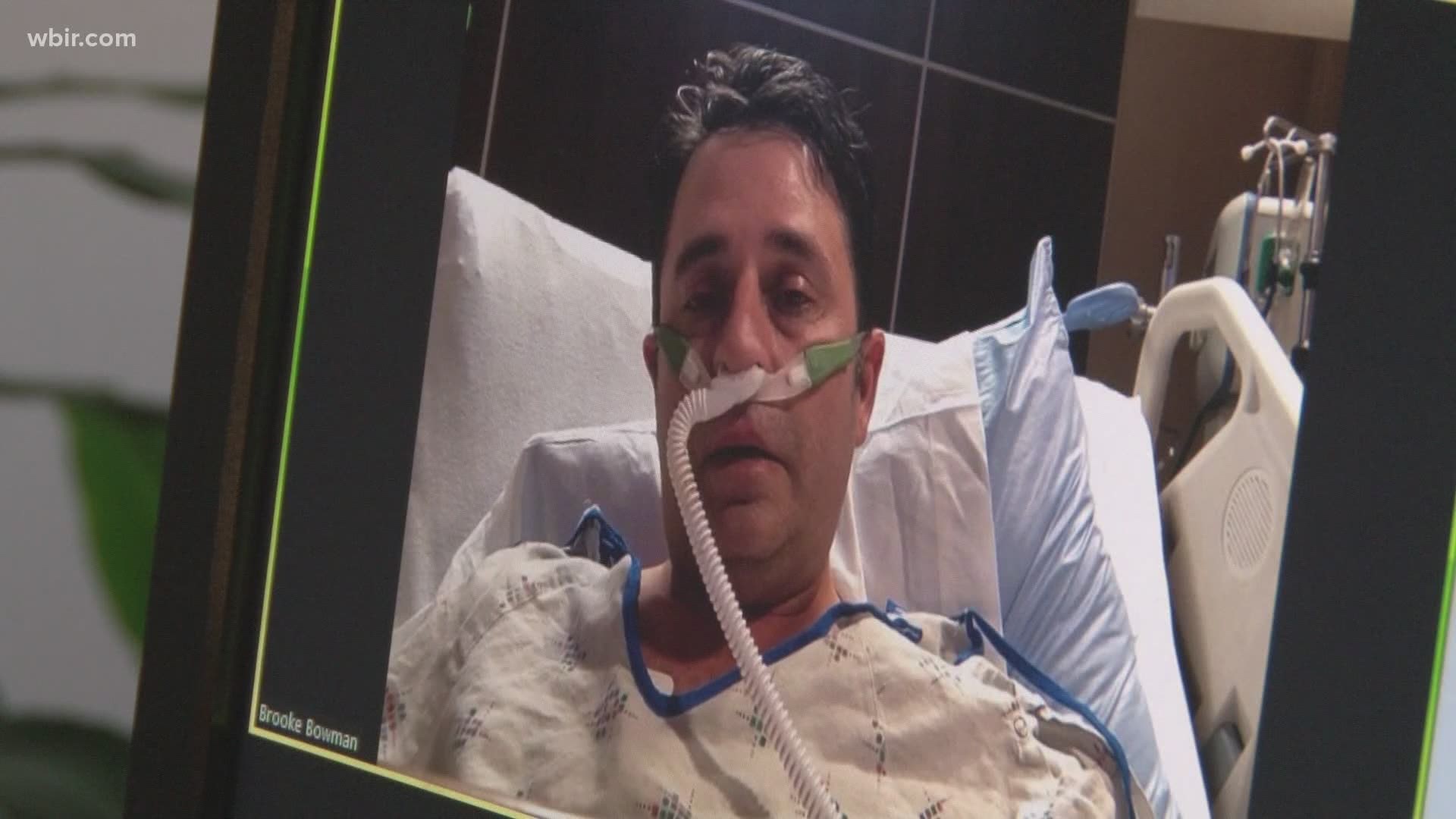The coronavirus is trying to kill Philip Nagy.
Two weeks ago, the 46 year-old of two could go to the gym several times a week. He walked the dog. He played with his kids--a nine year old and an incoming high school sophomore.
Today, he's one step away from needing a ventilator. His doctor says his case is not unusual.
"The scariest part is not being able to breathe and there being no explanation for it," Nagy said from his hospital bed. "It really caught me off guard."
His family had been doing everything right. For months, his wife Kathy cared for her elderly mother who was dying of pancreatic cancer. The family avoided going around other people, worse masks and sanitized feverishly.
Then Kathy's mother died.
"When we did her celebration of life, everybody wore a mask. Everybody was sanitized. We checked temperatures before they walked in," Kathy Nagy said.
But it was not enough.
"What we didn’t realize was the person that was carrying the silent COVID-19. The one that was asymptomatic. And unfortunately that’s what got my husband and I exposed."
A niece from Florida who stayed with the family to attend the funeral found out she had been exposed to the virus. Later, Kathy and Philip Nagy both tested positive. She had mild symptoms. He was not so lucky.
"When my husband started having the symptoms, he immediately had a 100.5 degree fever for five days. The chills. The shaking. It was painful to watch. He was literally gasping for air," she said.
She brought him to the University of Tennessee Medical Center emergency room Friday afternoon.
"As they were rolling him out of the ER we looked at each other because we didn’t know if it was the last time we were ever going to see each other," she said, her voice cracking with emotion. "This is the person who has been by my side since I was 15."
"Things just escalated so quick."
Pulmonary critical care doctor Clay Callison said the family had done everything right.
"That's the scary part about this whole thing is they hosted a guest in their house, a family member. And we all do that," he said.
Nagy's case "is not unusual."
"What we’re seeing now is people that are otherwise healthy," Callison said. "What we’re seeing more is people like Mr Nagi."
He said he's given Nagy all the treatment options currently available, including a clinical trial of blood plasma.
"Hoping to buy him time so his body can recover so he doesn’t need to be put on a ventilator."
Philip Nagi said the recovery process is hard, demoralizing and scary.
Photos of his family next to the ICU bed helps, he said.
"You have a lot of emotions running through your head. 'Am I going to get through this. What is life going to be like when I get out of here?' It's a rough road," he said.

